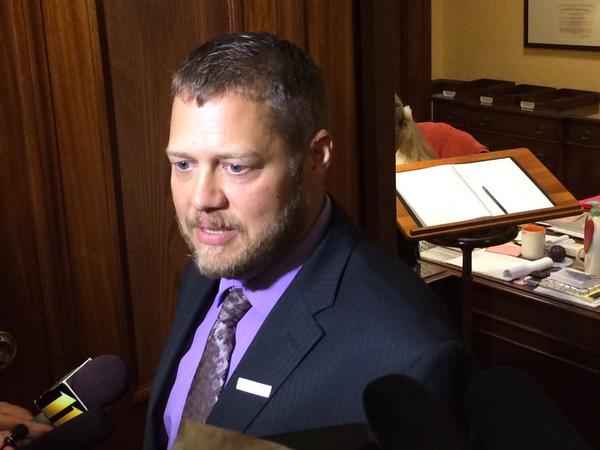In 2004, Kent Ostrander of the Family Foundation of Kentucky was at the forefront pushing an amendment to the state’s constitution to ban gay marriage. Ostrander said he wasn’t “out to target gays and lesbians” but rather defending “true diversity” in families – “a mother and a father.” And when opponents of the amendment pointed out that the clause banning civil unions was extremely broad – banning recognition of any “legal status identical to or similar to marriage for unmarried individuals” – and could have unanticipated consequences, such as the inability of the state university to offer domestic partner benefits to faculty, Ostrander dismissed these objections as a scare tactic. “Those on the other side of this issue are raising the specter of a number of different scenarios that are not relevant and are at best speculation,” he said. (Link thanks to Christine Sun.)
Three years later, Ostrander is once again at the vanguard – this time fulfilling the “speculation” he dismissed back then:
Ostrander says the universities are granting medical insurance coverage to an individual’s sexual partner.
“This means heterosexual, it means gays, lesbians and what-have-you,” the family advocate explains. “And it’s in direct violation of our state constitution, which we passed — the marriage protection amendment in 2004, saying that only marriage would be one man and one woman, and that nothing identical or substantially similar would be validated or recognized,” he says.
While the universities are changing their policies to broaden the health coverage beyond the scope of the anti-gay marriage amendment, Ostrander still organized a rally against the benefits last week, and is planning another one on Monday urging legislative action.







